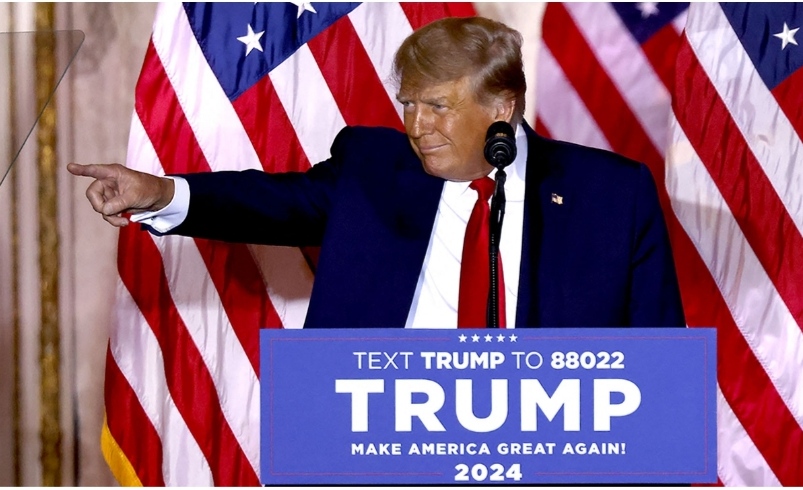New York judge sets fraud trial date for Trump and his three eldest children

Former US president Donald Trump speaks at the Mar-a-Lago Club in Palm Beach, Florida, on November 15, 2022. Donald Trump pulled the trigger on a third White House run on November 15, setting the stage for a bruising Republican nomination battle.
Donald Trump and his three eldest children will go on trial late in 2023 in a civil lawsuit brought by New York’s attorney general that accuses them of fraud, a judge ruled Tuesday.
Justice Arthur Engoron of the Manhattan Supreme Court set a trial date of October 2, 2023 in the case that alleges Trump and his family members misstated the value of properties to enrich themselves.
The trial – and a host of criminal, civil and congressional probe cases that Trump is facing – will likely complicate the ex-president’s run for a second term in office, which he announced last week.
The date, which Trump attorneys are likely to try to delay, would come close to the start of primaries season for the 2024 Republican presidential nomination.
Top New York prosecutor Letitia James sued Trump, Donald Trump Jr, Eric Trump, Ivanka Trump and the Trump Organization in September alleging they lied to tax collectors, lenders and insurers for years.
She says they provided fraudulent statements of Trump’s net worth and false asset valuations “to obtain and satisfy loans, get insurance benefits, and pay lower taxes.”
James, a Democrat, has requested that Trump pay at least $250 million in penalties and that his family be banned from running businesses in the state.
Her office does not have the power to file criminal charges in the case.
Trump, 76, says the lawsuit is politically motivated. He has repeatedly tried to have it dismissed.
He endured another legal blow Tuesday when the Supreme Court cleared the way for his tax returns to be handed over to a committee of the Democratic-majority House of Representatives.
Unlike presidents since the 1970s, Trump refused to release the records while in office and took to the courts to block the congressional request.




